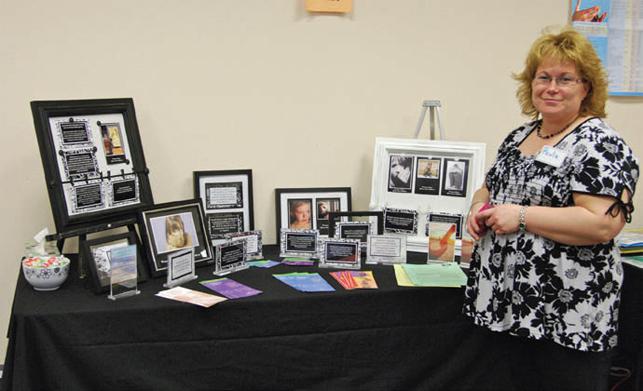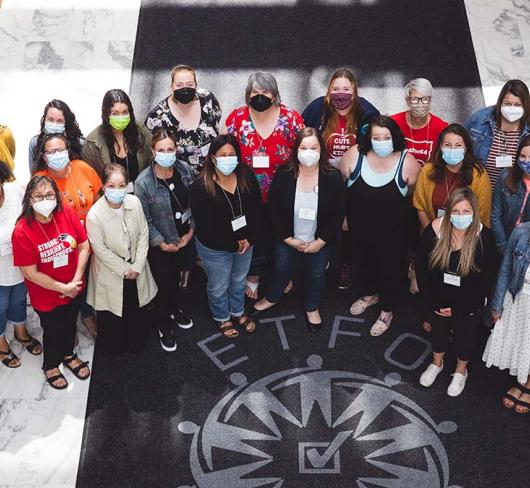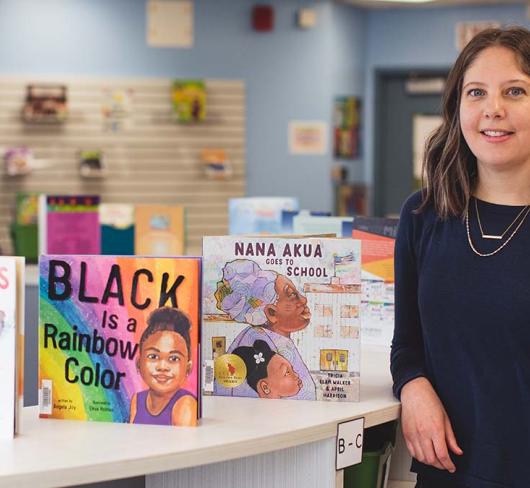
Local Workshop Dispels Myths
SHOCKING REVELATION
Can you imagine? An upset student discloses that, after years of sexual abuse, her father has impregnated her? A student is withdrawn and anxious and his grades drop. Discussions reveal his mother is regularly beaten. Would you know how to help these students?
ATTENDING A WORKSHOP CHANGED US
In January, Paula Carmichael and I attended the Woman Abuse Affects Our Children workshop in Ottawa and returned all fired up. We wanted the information we had received to get to our members, who teach primarily in small rural communities in a geographically large board. We put together a list of goals for a possible workshop and arranged to speak at our next executive meeting. We hoped that
- teachers would gain a better understanding of woman abuse and its effects on children
- develop a greater comfort level in dealing with children and families in distress
- understand that they are very often the first source of help and it is their duty to report
- understand the role of the Children’s Aid Society (CAS) and the work it does.
TEAMWORK
Our presentation was enthusiastically received, and our president, treasurer, and professional development committee met to discuss funding and assign tasks to make the workshop a reality. We have a policy in our local of having as many paid PD workshops for our members as possible. Among other things, this encourages members to take a risk and attend PD that is not curriculum-based.
THE HEART OF THE MATTER
Twenty members attended the workshop we organized. We kick-started the sessions by listing some myths and facts about woman abuse. That woman abuse crosses all social boundaries was an important realization for many.
Next, Jackie MacWilliam, child and youth outreach coordinator at Lanark County Interval House, discussed possible behaviours exhibited by children with abused mothers and strategies to help these children. It surprised many to learn that some abusive spouses will deny their partners access to hygiene articles, money or bank cards, or a phone.
Many participants commented that this speaker’s presentation would help them to recognize signs of abuse in their students, while others noted how woman abuse can affect a child’s overall ability to learn. Knowing how to support these children not only helps them but often improves the classroom they are in. A student told one of our speakers that she loved going to school even though she didn’t actually like school itself. Sometimes school is a child’s only safe space. A letter from a child of a formerly abused woman urged us, as teachers, to take action when woman abuse is suspected. Many of us were moved to tears.
After lunch, Christine Kealy, who is with the Lanark Children’s Aid Society, shared statistics and background and, more importantly, discussed the requirement to report. Section 72 of the Child and Family Services Act lays out the reporting requirements clearly. Any person who notices a child in distress and suspects abuse has a legal obligation to report to the CAS themselves.
Barb Lotan, public education coordinator for the Lanark County Sexual Assault and Domestic Violence Program offered information about the medical treatments these families can require. We were amazed to learn that the cost of abuse runs into the billions. We did not realize that hospitals in our area are now asking people over the age of 16, “Do you feel safe at home?” Many were shocked to learn the legal age of consent to sexual activity is 16.
FEEDBACK
Participants’ comments revealed their appreciation of the opportunity to attend this workshop.
“I really enjoyed the ‘myths and facts’ session because it did highlight one of my own misconceptions, one I can work at correcting.”
“The speakers were great and they talked about what’s going on, what’s happening, and it’s real.”
Resources
Woman Abuse Affects Our Children: An Educator’s Guide and Woman Abuse Affects Our Children: AFacilitator’s Manual are available at curriculum.org/womanabuse.
To inquire about workshops contact Carol Zavitz at provincial office; czavitz@etfo.org.

